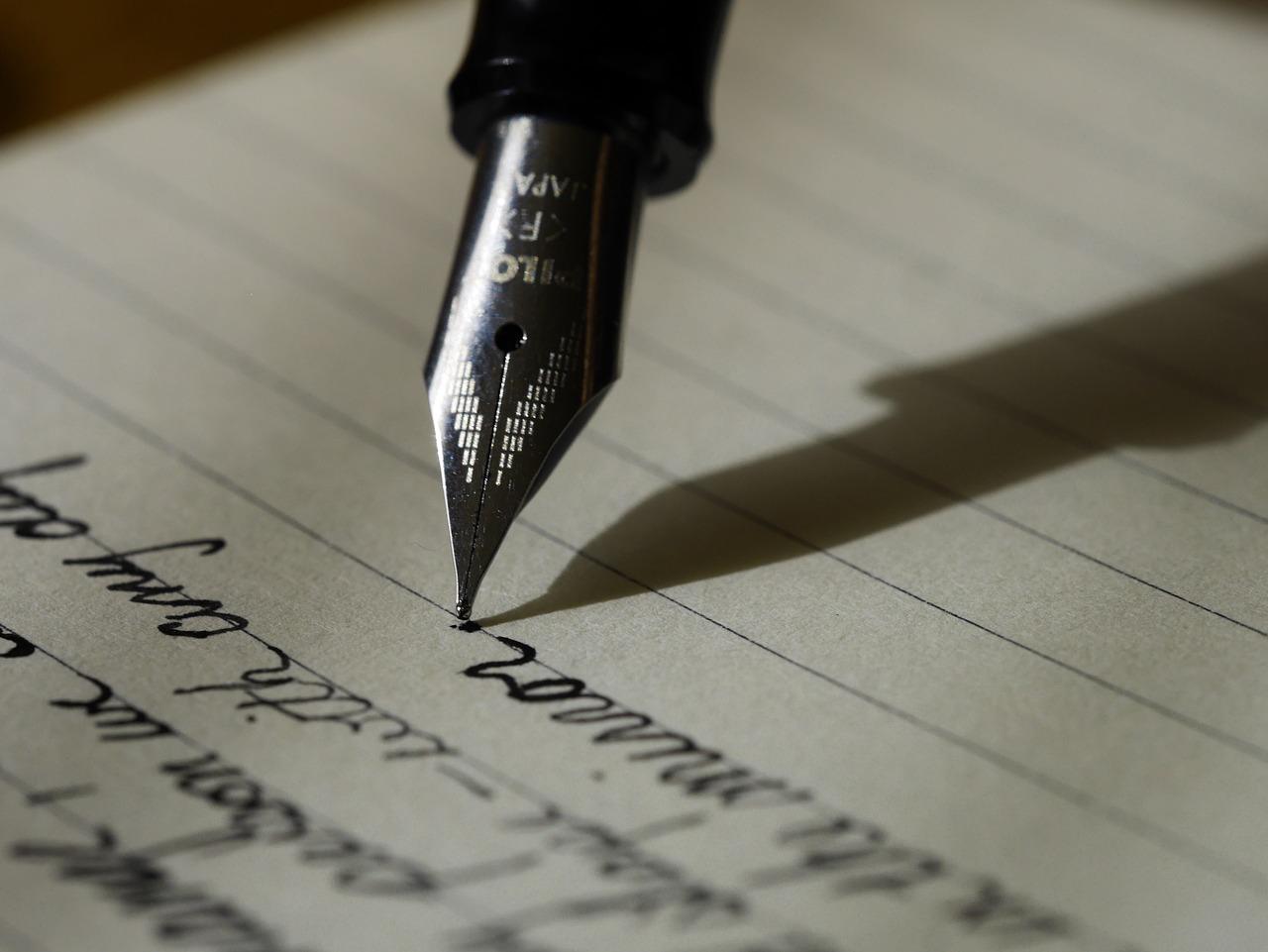If you are interested in how to keep a diary, carefully read my post. In it you will find a lot of useful information and a variety of tips. In the article, I will consider the topic of keeping diaries - personal, nutrition, weight loss, training.
Some people begin to keep diaries in childhood. There they record their experiences and secrets, capture interesting moments, resentments and moments of joy.
With age in the diary, they begin to describe their life. Such personal diaries are not intended for prying eyes. After reading once a few notes, a person returns to the past and re-experiences long-forgotten sensations.
How to start a diary
The Internet is full of user-generated electronic diaries. People read and comment on them. Some write diaries by hand using a pen and paper.
Where to begin?
- First of all, think, why do you need this? A personal diary is a kind of secret that only you, a personal psychologist and best friend should know.
- Buy a notebook. If you need a diary, choose a model without unnecessary inscriptions.
- Take notes as you see fit. Not necessarily daily. It is enough to record a few phrases about the past days once every couple of days.
- If you intend to describe in detail important events before the new recording, be sure to indicate the date.
- Be sure to fill out the diary. Some use colored pens, apply drawings, paste clippings and pictures. With the help of design, you will make the diary an encyclopedia of personal life.
- You can write down the history of your birth, family, aphorisms, jokes, poems, interesting stories and even dreams in the diary. If a serious problem occurs, pour it onto paper. So it’s definitely easier, and after some time you, smiling, remember this event and learn a useful lesson.
Memory over time can fail, the Internet connection is lost, but a personal diary is always available.
Video recommendations
Personal Diary Tips
When a person first opens his diary, he has a question: what to write about?
- Make notes all the time. Only continuous work with a personal diary gives excellent results. Record not only important events, but also interesting thoughts, thoughts, assumptions.
- If you have not opened the diary for several days, do not blame yourself. Take a pen and continue your creative work.
- Record new entries in a comfortable and cozy environment. At the table, on the couch and even on the street. Allocate a specific time for the recordings.
- Keeping a personal diary is a great opportunity to retire. You can safely forget about spelling and other formalities. Focus not on beautiful handwriting, but on thoughts.
- Write freely without interrupting the flow of thoughts. You can draw, paste pictures, use someone else’s phrase and even shower yourself with praise.
- Re-read the notes once a month. By re-reading the notes, you can convert the recorded information into useful data regarding you, plans and ideas. After reading just a few pages, you are aware of where your energy is going and what you are thinking about.
- Be sure to include the time, date and place of recording. Write in the first person.
Remember, there are no mandatory requirements for maintaining a personal diary. The diary is a way of independent development. It allows you to analyze your personality and quickly take measures aimed at quickly achieving goals.
How to keep a diary of nutrition and weight loss
I want to share my personal experience in the field of nutrition. A few years ago, my weight increased by 20 kilograms. Trying to lose weight, I began to keep a food diary. At the moment, the weight has recovered.
What to record?
- Buy a tool that will help determine the high-calorie food, serving size, calculate the content of carbohydrates, fats and proteins. Fix everything for the first week.
- Take pictures of food labels that you eat outside your home. Upon arrival, you can find out and record the number of calories received.
- Get a small electronic cooking scale. You can also buy a measuring spoon.
- Counting food in grams is not always convenient. You can navigate by portions. It’s easier to record the amount of food eaten.
- Write down information about drinks. First, you can measure the amount of liquid you drink with cups, then with milliliters. A healthy person should drink up to two liters of water per day.
- Record the amount of sweets and sweets eaten. Fix everything that you put in your mouth.
- Having visited the restaurant, do not forget about keeping a diary. The menu next to the name of the dish indicates the ingredients. Based on this information, calories can be determined.
- Keep a diary and pen at hand. If you like modern electronics, use your mobile phone as a diary.
- Try to use a food diary as a means of forming a habit.
Video tips
The right weight loss diary
In addition to proper nutrition and exercise, keep a weight loss diary. It performs several functions:
- displays success in losing weight;
- defines effective ways to combat overweight.
- Write down what you ate, how many times, in what quantity. This will calculate the number of calories. Note how much exercise you did per day.
- At the end of the entry, indicate the weight. Write this number in large numbers and highlight with a marker.
- Make up weight loss plan the next day. Keeping a diary is not easy, but do not stop.
- Make a menu for tomorrow. Go to the store and buy cereals, fish, honey, low-fat kefir, fruits and vegetables.
- Waking up in the morning, tune in to fight weight. Do small charge, eat some porridge and drink tea with honey. Do your best so that in the evening there are reasons for pride.
- In the evening, be sure to measure the weight and write in the diary. So you can control the effectiveness of the selected method of losing weight.
Remember, when creating a new entry in the diary of nutrition and weight loss there is no room for lies. Only honesty will help achieve the result. Sure, it’s not easy at first, but after a few weeks you’ll notice that your health has improved and you have become much slimmer.
How to keep a training diary
You may ask, is it worth keeping a training diary? The answer is simple - yes! A professional can do without a diary, and within the framework of training, be guided by intuition. For a beginner, a diary is a must.
The results of training recorded in the diary will become an incentive for further advancement. Such records make a person disciplined and encourage to something more.
Consider keeping a training diary on the example of kettlebell lifting. In the diary, you can write down what exercises were done before, how many times you repeated, with what load.
- Training time. Over time, you will notice that you spend different time on one workout, depending on the fatigue and severity of the program.
- Number of approaches. The indicator is not difficult to fix, and in the future it may come in handy.
- Number of lifts. The indicator characterizes the total volume of one workout. To get it, add the number of lifts and multiply by the number of approaches.
- Total tonnage. The indicator displays the weight that you raised during training.
- The average weight. To get this figure, divide the total tonnage by the number of lifts. Ideally, the rate should increase over time.
- Training intensity. Divide the number of approaches by the time of training. The result is a time indicator that takes one approach. The training intensity indicator is proportional to the time indicator.
Instructional video
The listed metrics can be recorded per day, week and month. It turns out the dynamics of changes in loads and results. In this case, you can calculate the total and relative values.
Features of keeping a diary
The diary is an extremely useful thing. Having it at hand, you will never forget about the important business that needs to be done today or tomorrow. It will remind you of an important meeting or event.
Busy people write down even thoughts in their diaries, because remembering everything is unrealistic. It is recommended to keep a diary, especially when it comes to personal affairs, career or business.
You can keep a diary in paper form or in electronic form using special applications. Choose a paper diary with numbered dates and days of the week.
Let's talk directly about keeping a diary.
- Write what you intend to do on a particular day. For example: to purchase household appliances, visit the zoo, go to relatives.
- If you have done the planned business, be sure to cross it out. It is better if the diary is always with you. So it turns out to control things more efficiently.
- If it was not possible to complete the planned case, reschedule it the next day.
- Opposite each case, give grades. If the case is not conducive to development, put a zero. Mark cases that bring you closer to a specific goal with a five.
The diary does not have a strict framework. You can act on your own.
Write in the diary everything that you consider necessary. However, do not make a dump out of it by recording meaningless information. In the diary, put those things that you value. Do not share them with outsiders. Throw a dump of thoughts on social networks.










